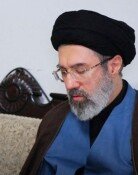Cross-voting decides the fate of Gyeonggi governor election
Cross-voting decides the fate of Gyeonggi governor election
Posted June. 03, 2022 07:40,
Updated June. 03, 2022 07:40
The margin was only 0.15 percentage points. The final winner of the governorship of Gyeonggi Province, which was considered as the highlight of the local elections on June 1, was Kim Dong-yeon of the Democratic Party of Korea. The candidate from the Democratic Party of Korea overtook his rival Kim Eun-hye of the People Power Party when the ballot counting seemed to have reached the end in the early next morning. More than 5.8 million voters participated, but the difference of their final counts was merely 8,913.
This is significant. The People Power Party was on the verge of carrying all the governorship and mayorship in 13 districts except for Jeolla and Jeju, but their momentum screeched to a halt in the eleventh hour. Notably, the population of Gyeonggi, at around 14 million, takes up one fourth of the total population. The Democratic Party of Korea experienced both hell and heaven. In the earlier phase, the opposition party expected an easy win, but eventually it struggled to secure a close win after going through many unfavorable factors.
Gyeonggi was symbolic for this year’s local elections. From the ruling party’s perspective, it effectively presented a showdown between the two main candidates, who each had earned the support from President Yoon Suk-yeol and Lee Jae-myung. Other controversial factors were at play as well, including the public evaluation about the newly-inaugurated Yoon administration, a premature return of former presidential candidate Lee Jae-myung, and the internal discords of the massive opposition party.
President Yoon and the People Power Party must learn lessons from their loss in Gyeonggi. Four years back, Democratic swept 31 municipality posts in Gyeonggi Province, but this time, it was the People Power Party that dominated with 22 wins. But the governorship was handed over to the Democratic Party of Korea. This means a significant share of voters went for different parties for governorship, mayorship, and the head of municipalities. Such cross-voting was witnessed in other regions including Seoul. This is indicative of voters’ inclination to check the closest aides of President Yoon and the new political up-and-comers. The public opinion about the prosecution and the rise of MOFia (a combination of Ministry of Finance and Mafia) must be construed accurately. The notion of a “hypothetical unified candidacy” is beside the point.
While the Democratic Party of Korea has secured their stronghold of Gyeonggi, its rampart is showing cracks. As the results of local government elections show, their win reflects the success of fielding the right man rather than an overall public support for the party. The low turnouts in traditionally pro-Democratic districts should be interpreted as their supporters’ disappointment about the lack of remorse from the opposition party after their defeat in the presidential race.
The election in Gyeonggi can be likened to a microcosm of public sentiment. Given the marginal difference of final votes, it was practically a draw. This should be construed as a warning to the political circles against lowering their guards and repeating their old mistakes. The difference of 0.15 percentage points is a reminder that it is time for them to take a step back and pursue bipartisan cooperation with humility.







